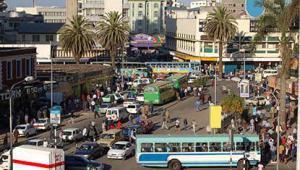The joint appeal was launched to help those impacted by the heaviest rainfall in more than three decades in the centre and south of Somalia.
Peter de Clercq, UN humanitarian coordinator for Somalia, said: “As climate change risks invariably increase, more resources are needed to address the root causes of fragility, chronic poverty and low human development that are affecting the bulk of the population.”
The UN added that humanitarian partners are unable to rely on the existing $1.5bn humanitarian response plan for Somalia for 2018, which is only 24% funded.
The rain has led to fatalities, displacement, and damage to infrastructure and cropland, the UN Office for the Coordination of Humanitarian Affairs said.
It is estimated that more than 750,000 people are affected by the flooding.
Agriculture must play a central part in boosting Somalia’s economy and alleviating poverty, the World Bank and the Food and Agriculture Organisation said earlier this year.
Agriculture makes up 75% of the country’s GDP and 93% of total exports. Around half (49%) of Somalia’s population lives in rural areas and 46% of employed people work in agriculture.
Rapid population growth and urbanisation alongside the collapse of crop production has led to increased imports. These peaked at nearly $1.5bn in 2015, up from an annual average of $82m in the late 1980s.
The heavy rains and flash floods come only months after a devastating drought left over six million people in need of humanitarian assistance last year.






